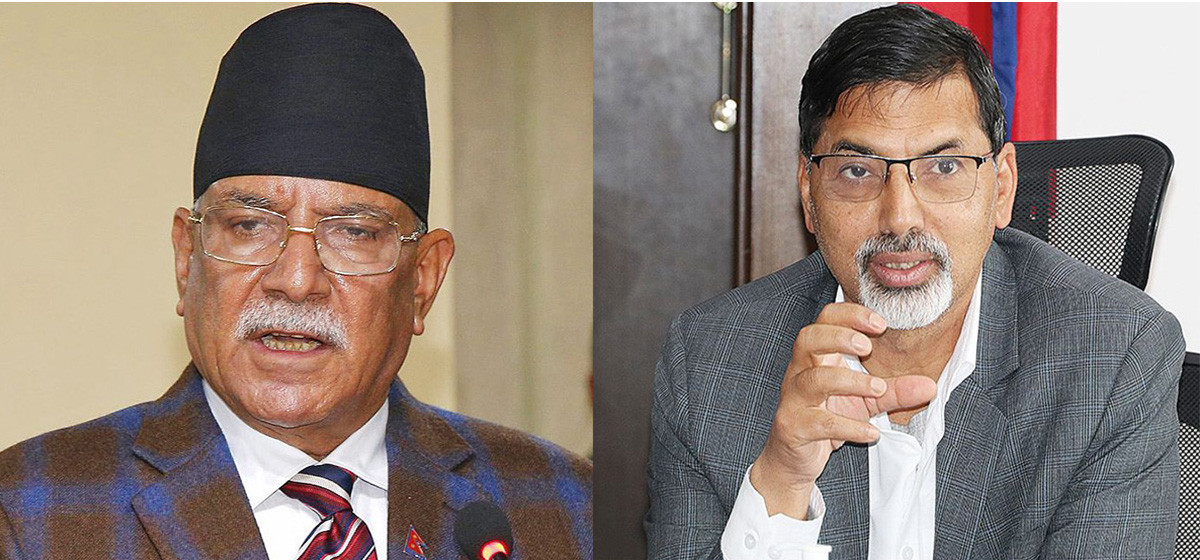KATHMANDU, Aug 3- A new chapter in the internal strife of the CPN (Maoist Centre) appears to be unfolding, with a calculated effort emerging to isolate Deputy General Secretary Janardan Sharma. Party insiders say Sharma is under pressure to offer public contrition for airing internal grievances in public—part of a broader strategy, they claim, being orchestrated by party chair Pushpa Kamal Dahal.
Clues to this internal maneuver surfaced when another deputy general secretary, Barshaman Pun, publicly praised Dahal as a "visionary leader" at a recent event. Pun also remarked that no matter how discontented leaders may feel, they cannot "deviate or flee" from the party—a pointed statement given ongoing discussions within the party’s Standing Committee about Sharma’s recent public criticisms of Dahal’s leadership.
One senior party leader, speaking on condition of anonymity, said the push to isolate Sharma is now visible. “Most leaders in the meeting expressed that internal disputes should be settled within the party,” the leader said. “They argued that Sharma’s remarks undermined the party’s discipline and cohesion.” Of the 18 committee members and five officials who spoke during Saturday’s session, nearly all echoed similar sentiments. The meeting will continue on Sunday.
Standing Committee member Ram Karki attempted to tone down the speculation, saying, “Contrary to the rumors, the discussion has been restrained. There’s no talk of taking disciplinary action. Sharma has been advised not to speak publicly on internal matters, and this suggestion should be taken constructively.”
The strategy of isolating China is flawed

The meeting also briefly touched on the idea of convening a special general convention, although views on this remained scattered, according to Karki.
Interestingly, several members used the occasion to defend Dahal’s past performance as prime minister, particularly on anti-corruption efforts. “Today, most speeches were filled with praise for Dahal,” said one committee member. “There was hardly any substantive discussion on strengthening the party, let alone talk of a special convention.”
Ganeshman Pun, another senior figure, criticized members who have taken internal matters public, saying such actions erode party secrecy and public trust. Satya Pahadi and Kamala Roka joined in, specifically criticizing Sharma for signaling factionalism at a time when the party is trying to project unity.
During the same meeting, Anjana Bishankhe was the lone voice raising concern over party procedures, saying decisions should follow institutional protocols. According to a member quoting her, “It’s wrong for the party chair to make public statements about the party possibly splitting or not. If anyone’s accountable for the party’s failure to institutionalize, it’s the leadership. We’ve been saying for years the party isn’t being built—who is responsible?”
The controversy traces back to Sharma’s remarks at the Pushpalal Memorial Day event on July 21, where he did not name Dahal directly but accused all former communist prime ministers of corruption—except Manmohan Adhikari. He also demanded that an independent body investigate the assets of party leaders.
Sharma’s remarks are the latest flashpoint in a long-simmering debate within the Maoist Centre about leadership transition. Although Sharma ranks low in formal hierarchy, he has cultivated a strong national network and has long been a vocal advocate for generational change. Dahal, who has led the party uninterrupted for nearly 37 years, now finds himself increasingly cornered by growing internal demands for fresh leadership.
While Dahal still holds numerical dominance in party structures, a significant section of younger members is now openly backing change. What’s clear is that this leadership dispute will not die down quickly. With each passing day, the burden of internal dissent appears to be weighing more heavily on the party’s long-serving chief.
Dahal’s recent statement that he intends to stay in leadership for another five to seven years has only intensified calls for a special convention. In last Wednesday’s office-bearers' meeting, Sharma proposed a four-point agenda, which was later subsumed—some say diluted—by General Secretary Dev Gurung under the heading of "party unity," allegedly at Dahal’s behest.
Even in the ongoing Standing Committee session, Gurung has presented this repackaged proposal, further sidelining Sharma’s push for leadership reform.
Sources say Dahal spent part of Friday’s meeting subtly dismissing Sharma’s concerns under the broader theme of “internal unity.” In Saturday’s session, the same tactic appeared to continue: muting dissent by cloaking it in calls for party harmony.





































